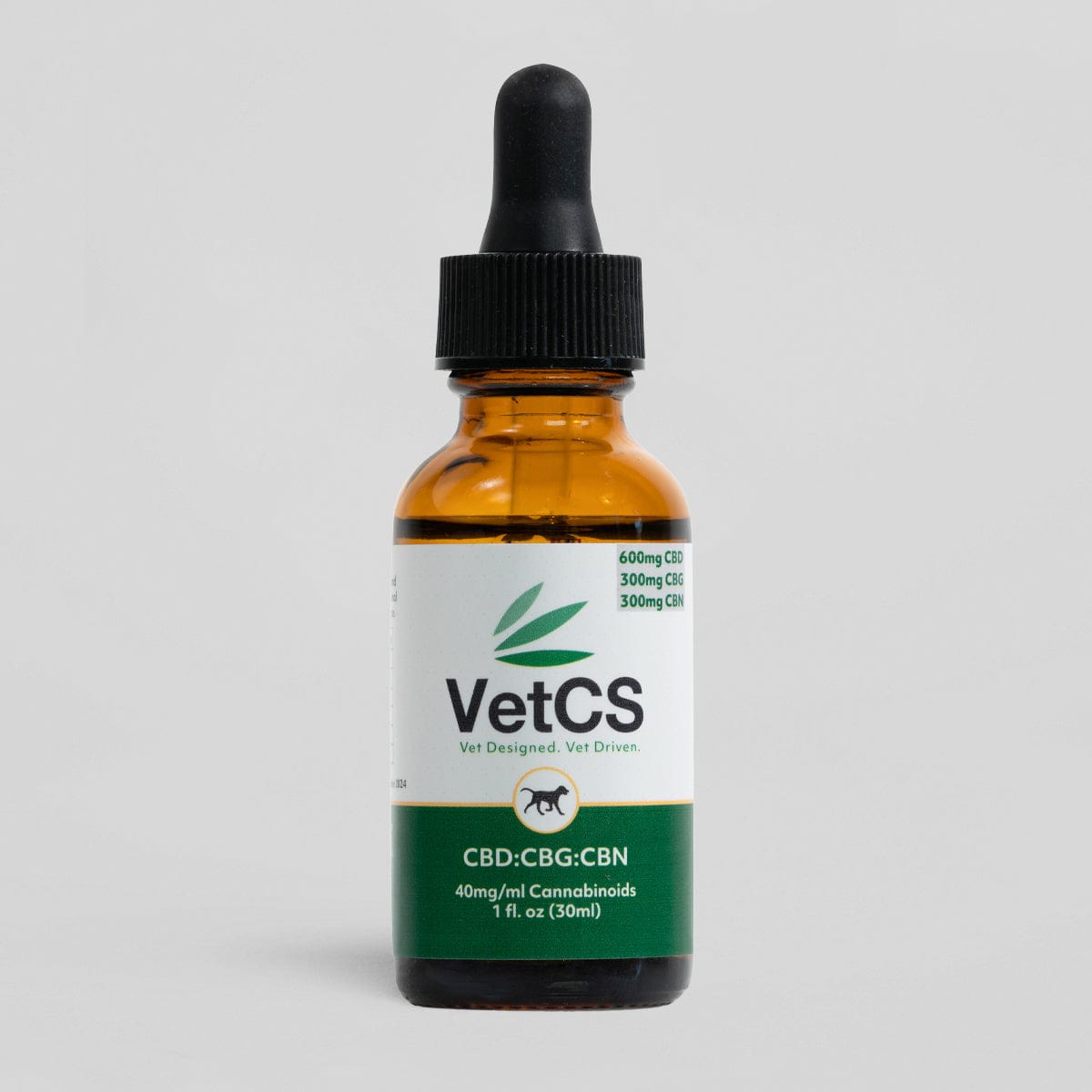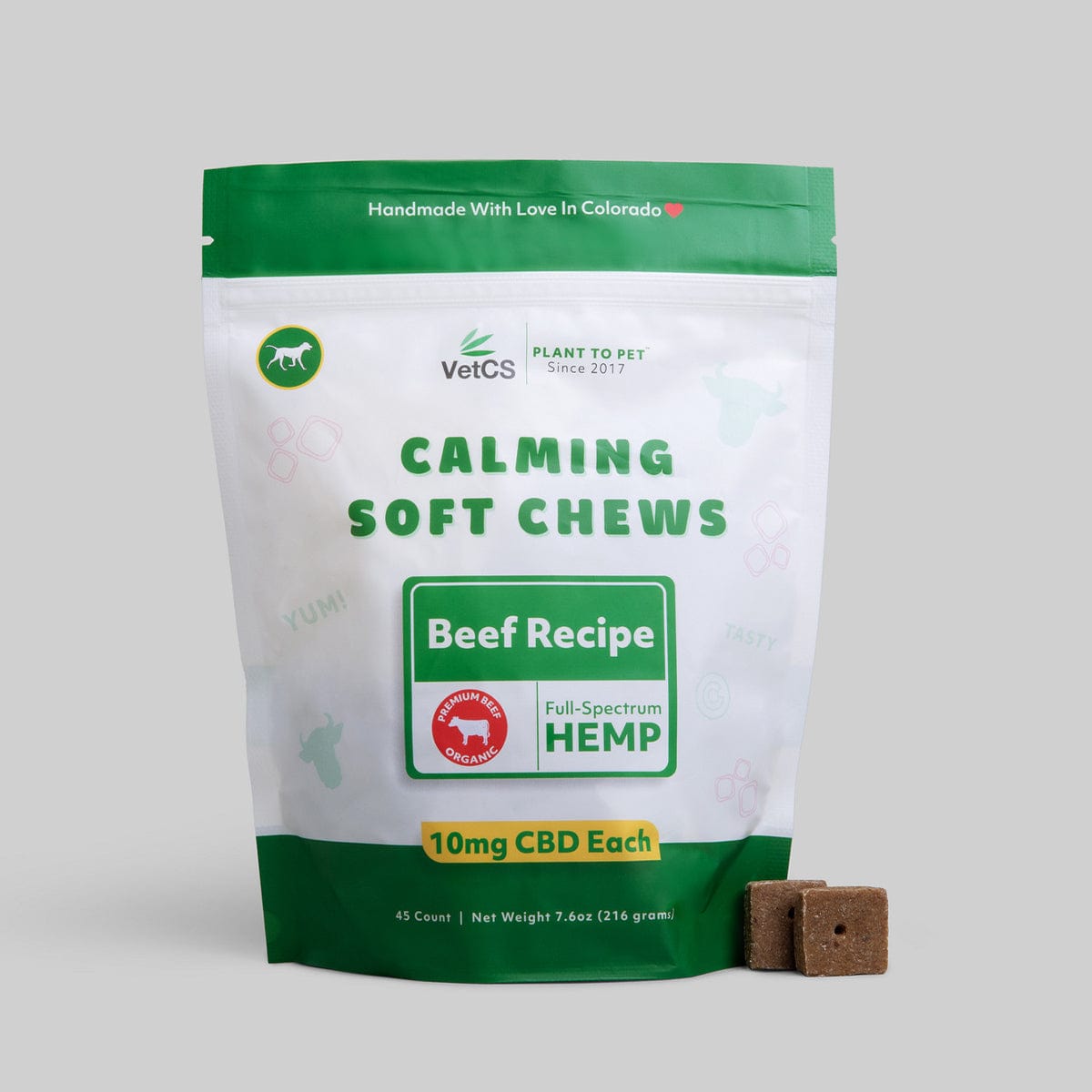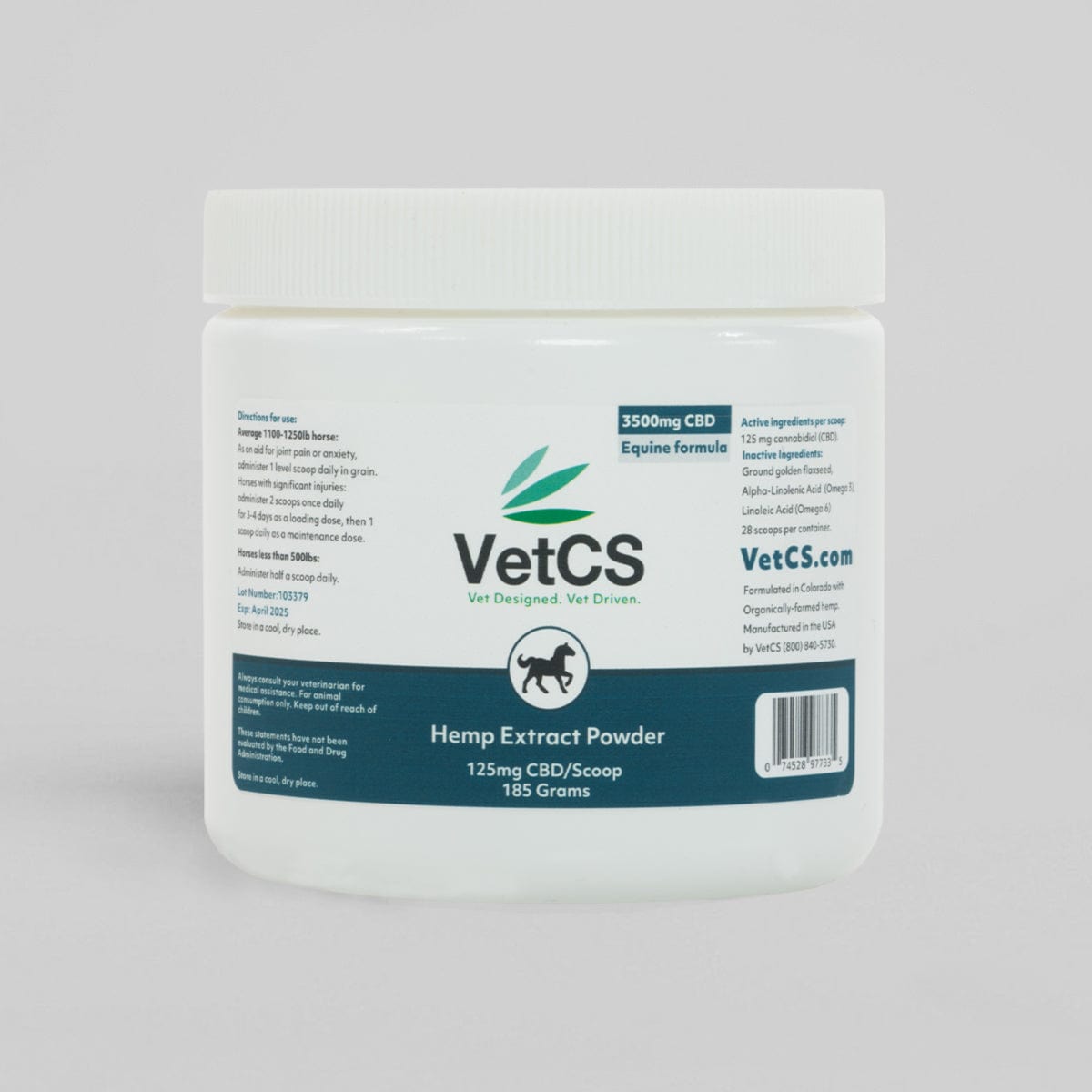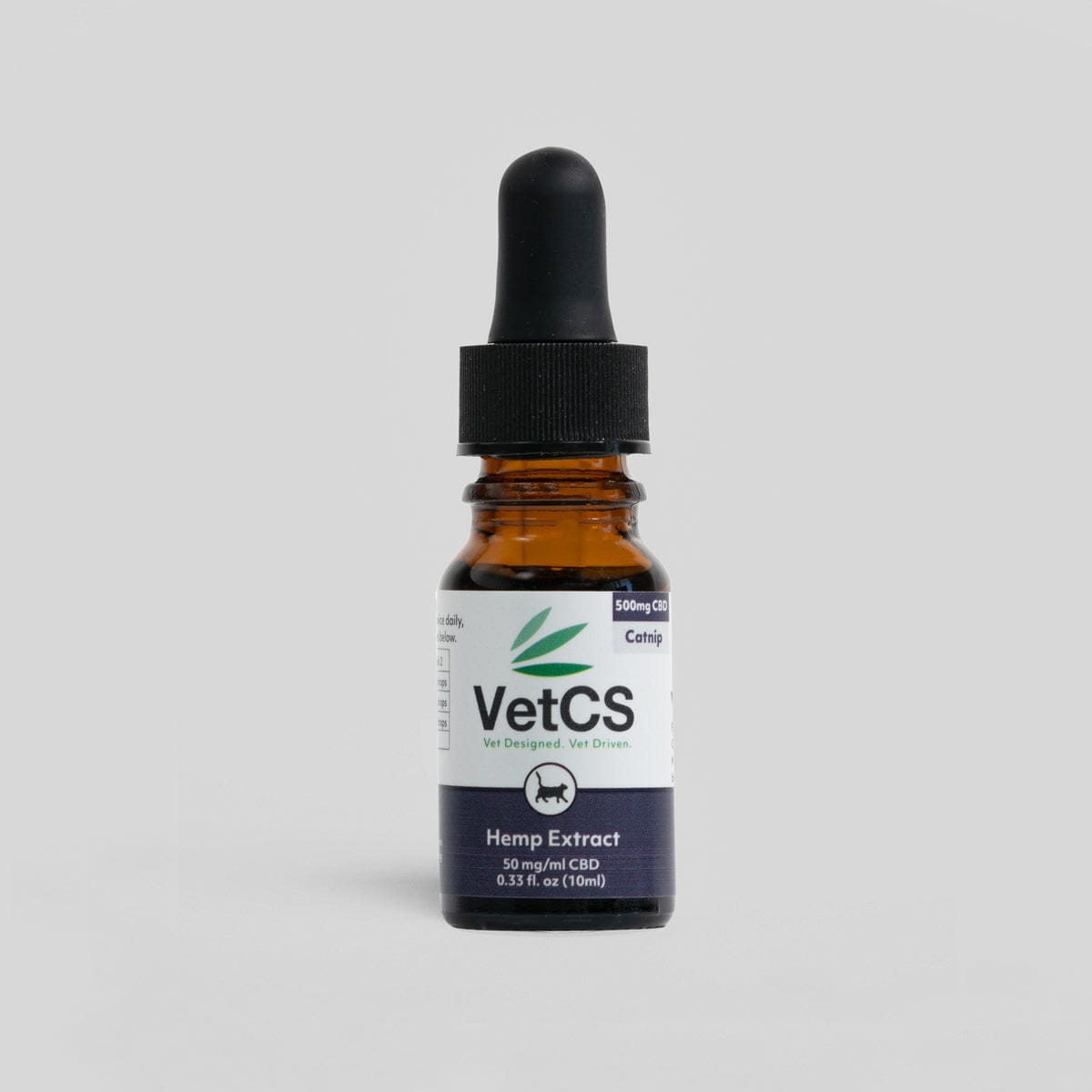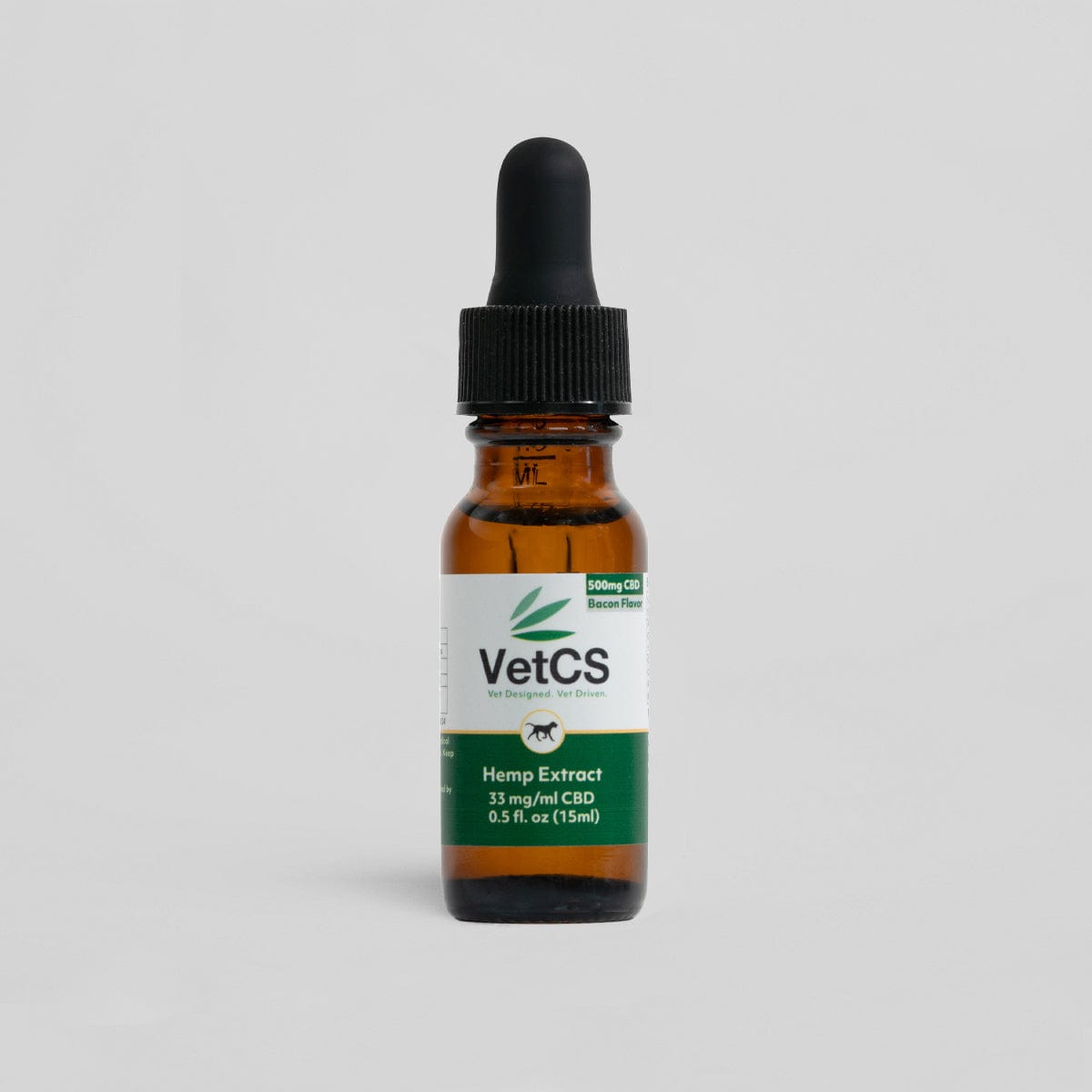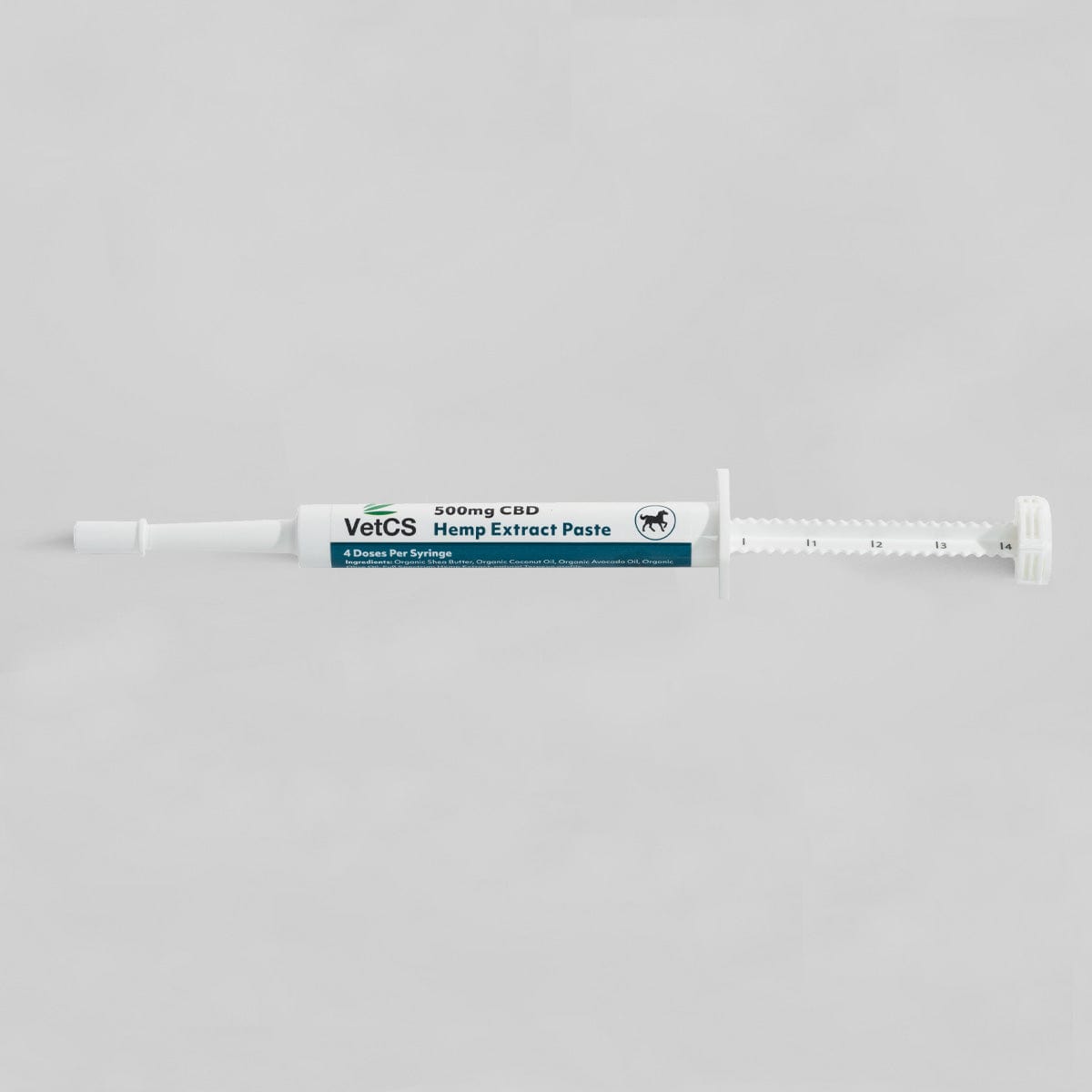Acronyms abound in hemp speak; more information has been learned about cannabidiolic acid (CBDA for short) in recent years. In the live hemp plant, CBDA exists and it takes heat to transform CBDA into CBD as we know it for tinctures and treats. So what are the benefits of using CBDA in addition to CBD?
CBDA is the cannabinoid in the acidic form; studies have shown that CBDA is easier for the body to absorb and can be greatly helpful in inflammatory conditions. CBDA plays a role in the COX cycle and can act similarly to a non-steroidal anti-inflammatory drug when it comes to pain relief. CBDA also has better binding affinity than other cannabinoids, meaning that it more effective within the body to support normal functions. Additionally, CBDA has been found to have the same benefits in helping reduce seizure activity in dogs.
VetCS retains a commitment to staying at the forefront of advancements in veterinary medicine. We remain dedicated to delivering innovative and effective solutions that enhance the lives of animals. By pushing the boundaries of traditional pet care, VetCS sets a high standard for innovation in the industry. With the growing popularity of alternative therapies, one particular compound has been gaining attention in the veterinary world - CBDA.
Understanding CBDA:
CBDA, or cannabidiolic acid, is a naturally occurring compound found in the raw form of the hemp plant. It is considered a precursor to CBD (cannabidiol) and is converted to CBD through a process called decarboxylation, which typically involves heating the plant material. CBDA is commonly found in hemp plants and is present in higher concentrations than CBD in its raw form. CBDA is classified as a cannabinoid, similar to CBD, and interacts with the endocannabinoid system (ECS) in the bodies of humans and animals. The ECS plays a vital role in regulating various physiological functions, including mood, pain sensation, inflammation, and immune response.
While CBD is more well-known and extensively studied, research on CBDA is still in its early stages. Current studies suggest that CBDA may have potential therapeutic properties, such as anti-inflammatory, anti-nausea, and anti-anxiety effects. Inflammation is a common underlying factor in various health conditions faced by dogs, including arthritis, allergies, and skin irritations. CBDA plays a role in the COX cycle and can act similarly to a non-steroidal anti-inflammatory drug when it comes to pain relief, which may help alleviate pain and discomfort in dogs with mobility issues or senior dogs needing extra supportive care.
It’s important to note that further research is needed, but the research conducted thus far has shown positive results. It's also worth mentioning that CBDA is distinct from CBD in terms of its chemical structure and potential effects. Some researchers believe that CBDA may have its own unique properties and benefits separate from CBD. As research continues to unfold, the understanding of CBDA and its potential applications in various health conditions may become clearer.
CBDA holds great promise as a natural supplement for dogs, offering potential benefits in various health conditions. From reducing inflammation to providing relief from anxiety and promoting skin and coat health, CBDA has the potential to improve the overall well-being of our furry companions. However, it's important to consult with a veterinarian before incorporating CBDA into your dog's healthcare routine. VetCS's wide range of CBD and CBDA products backed by their commitment to quality and safety, provides pet owners with a trustworthy option for exploring the benefits of CBDA for their dog. Learn more about our new CBDA:CBD:CBG:CBN product here!







